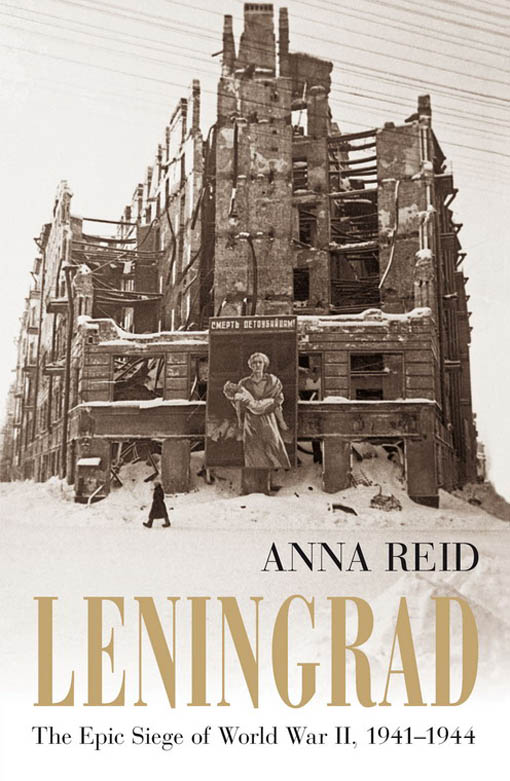
Leningrad
The Epic Siege of World War II, 1941-1944
- اطلاعات
- نقد و بررسی
- دیدگاه کاربران
نقد و بررسی

Starred review from June 13, 2011
Former Ukraine correspondent for the Economist and Daily Telegraph, Reid brings to this narrative a comprehensive background in Russian affairs, an eye for the telling anecdote, and an approach that integrates the everyday horrors of the three-year Nazi siege of Leningrad into wider contexts of operations and policy. Reid uses recently available material to, in another historian's words, "wip off the syrup" of Communist mythology. Stalin's government barely held the city and sustained it. It also bungled military operations, imprisoned and executed thousands for no reason, and took care of Party bigwigs while ordinary men and women died in misery. Leningrad's citizens showed courage and endurance. "Svyazi... string-pulling, exchange of favors, and bribery" made the difference between life and death. By June 1943 almost 2,000 cases of cannibalism had been processed by military tribunals. The Soviet system displayed stupidity, corruption, and callousness as the Nazis waged a war of annihilation, in which starving Leningrad was an end in itself. Leningrad's citizens endured, rebuilt, hoped for a communism with freedom and true civic life. What they received was a series of crackdowns and continued repression. Reid (The Shaman's Coat: A Native History of Siberia) makes a major contribution to lifting the curtain on that terrible siege. 16 pages of b&w photos; 6 maps.

June 15, 2011
An illuminating chronicle of the greatest siege of World War II.
Historian and journalist Reid (The Shaman's Coat: A Native History of Siberia, 2003, etc.) turns her considerable investigative powers to Germany's 872-day siege on Russia's important Baltic port, "the deadliest blockade of a city in human history." The author recounts a woefully unprepared defense that would cost upwards of 800,000 lives inside Leningrad. The history of the siege has suffered from many revisions, with misinformation beginning as soon as the German army moved against Russia, when Stalinist propaganda was substituted for news. Even after Germany's defeat, the narrative of Leningrad's siege was rewritten by a victorious Stalin, declared one of the greatest victories of the Russian people, the atrocities of starvation, cold and war effectively whitewashed. Since the fall of Stalinism, different political factions have claimed the story as their own. Reid corrects this by allowing the people of Leningrad to tell the story in their own words, pulling information from a wide range of sources: the bleak diaries left by those who died inside the city, journals kept by members of the advancing German army and interviews with the remaining survivors. The political intricacies of Russia can often be overwhelming, and the shifting alliances inside and outside the city are easily confused. However, the personal histories Reid brings to life make the insufferable conditions in the city all too clear and correct the great injustice of the siege: the silencing of its many voices. They are all here, unearthed and brought back to life to tell the story of citizens caught inside the siege ring, reduced to the most desperate means of survival as they waited for spring.
A pleasing combination of assured prose and firsthand accounts from inside the city's walls.
(COPYRIGHT (2011) KIRKUS REVIEWS/NIELSEN BUSINESS MEDIA, INC. ALL RIGHTS RESERVED.)

April 15, 2011
Seventy years ago this September, Hitler's armies surrounded Leningrad and laid down a siege that lasted for two and a half years. When it was over, three quarters of a million Leningraders had died. A former Ukraine correspondent for the Economist with a master's in Russian history, Reid uses newly available diaries and other materials to get past Soviet mythology and ask pertinent questions, e.g., Was Stalin as much to blame as Hitler? A three-city tour to New York, Boston, and Washington, DC; big promotion tied to an anniversary that should be discussed.
Copyright 2011 Library Journal, LLC Used with permission.




دیدگاه کاربران